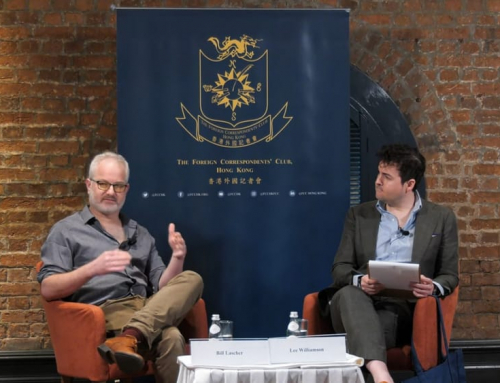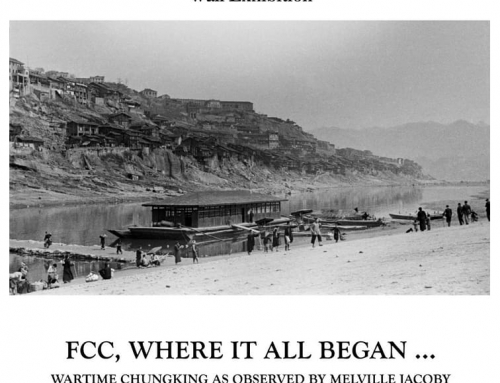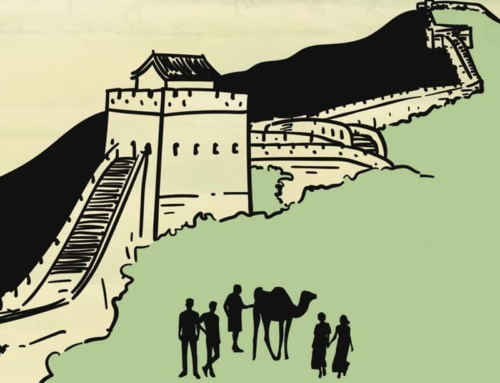A guest blog post from business veteran Jack Leblanc, whose entertaining book Business Republic of China is now available on Kindle, Nook and other e-readers!
* * *
Once upon a time Mr. Mayo, a smart businessman who headed a three-generation-old European company producing deep-frozen French Fries and other iced delicacies, decided that the time was ripe to head for China.
So by the middle of the 1st decade of the 21st century his entrepreneurial spirit brought him to the “mysterious” Far East.
His findings were astonishing to say the least: He discovered that the largest multinational fast food restaurants had set up shop far ahead of him, that some of those chains had hundreds of outlets spread all over the country, that the young Chinese loved fries almost as much as rice. And that meant that his deep-frozen fries should certainly be in demand.
He temporarily hired a Mr. Yang, a thirty-something-year-old, as his consultant to further discover the potential of his fries in the Middle Kingdom. Quickly the wildest estimates hit the Excel sheet, far exceeding the conservative forecasts Mr. Mayo could have dreamed up, and it soon became fact that selling to China was a must. His company would quickly show a return to the family shareholders far surpassing the 3-5% growth they saw in their customary markets.
Unfortunately the lack of enough cold storage, and therefore the prohibitive cost of small shipments, “taxing” import procedures and messy logistics to move cold containers around the country, quickly made him realize that to reach the end users he had to build a production facility in China.
It was decided to build a brand-new factory at a cost of 2.5 million Euros. It would be headed by Mr. Yang, whom Mr. Mayo had come to trust like family. Shandong was chosen as the perfect location. This made sense because it looked like potato paradise: Different varieties were available within a 400km radius. Farmers were eager to sell and at very interesting prices.
Sadly many of the potatoes that reached the production site turned starchy and were no longer the quality that would provide a superior French fry to which his European customers had become accustomed.
So Mr. Yang proposed to start importing European potatoes instead, which could be further processed into a likeable fry.
Mr. Mayo had got accustomed to Mr. Yang’s business acumen and decided on the spot that this should be the way to go.
Potatoes were imported in bulk and processed into the perfect fry.
The factory seemed to operate perfectly and Mr. Mayo would visit it at regular three-monthly intervals. Mr. Yang was always at the ready to pick him up at the airport, and on the way to the factory would explain to him how some of the imported potatoes would inexplicably rot and could not be used any longer in the production process.
Sales generated enough income to break even in the second year, as was planned. Mr. Mayo couldn’t have been happier. Until one day on his return to China, Mr. Yang met him at the airport and handed Mr. Mayo the keys of the car and… the factory. He no longer wanted to run the operations because he was in need of a well deserved break. All the protests and pleadings of Mr. Mayo were brushed aside and Mr. Yang left him there in the middle of the airport parking lot.
Shaken by the sudden departure of his most trusted staff member, he headed for the factory, wondering why Mr. Yang couldn’t have informed him earlier.
The truth however was going to hurt him more than he could ever imagine.
At the factory entrance, the place looked desolate: no guards at the gate, no trucks on the parking lot, no familiar smell of cooking oil in the air. It even seemed that the cold storage area seemed to be missing… Wrenching himself through the half-opened gateway, he walked into the offices… Desks, computers, cabinets… all had gone.
Rushing to the production site, he slid open the main door, only to hear the sound echo off the walls of the huge workshop several times over.
All the equipment had evaporated. Outside there were only traces on the ground where the huge cold storage units once had been.
He couldn’t believe his eyes. Since he had never driven himself to the site he quickly hoped that this would be the wrong address, the wrong location in the industrial park. Sadly enough he was at the correct co-ordinates. Anxiously calling Mr. Yang’s phone number was of no use. That phone number would remain switched off forever. The same happened to the phone numbers of other staff he had kept in his mobile’s memory.
A quick call home was kind of useless too. Now everyone over there was in a panic as well. A walk into the police station (public security bureau) of the city nearby gained nothing. Nobody there spoke English and he couldn’t speak a word of Chinese. Frustrated, he left to sob on his own and inexplicably flew back to Europe only to return a month later, together with his son. And this on the advice of his family lawyer.
Needless to say, nothing had changed.
With a translator they went to the police station. The officer in charge requested proof of company ownership, which they couldn’t show because all paperwork had disappeared with the equipment. When the officer asked for proof of theft from the Public Security Bureau, nothing could be shown except an empty factory, but only if the officer would be willing to go with them. The answer to when exactly this vicious act had taken place also got no clear reply. Finally asking who, in Mr. Mayo’s opinion, was behind the pilfering on the factory floor, Mr. Mayo exploded “Mr. Yang, Mr. Yang!”
At this the officer requested Mr. Yang’s address, copy of ID card and phone number, only for both father and son to reply with a sigh and a desperate look up into the air.
This was the end of the road for the officer. He had lost patience with these crazy foreigners who could not give any answer with clear proof or certitude.
A trip to the bank ended in further disappointment. A kind bank employee informed them that the company’s bank accounts were empty.
Further investigation revealed that the so-called “rotten” potatoes actually were not that rotten at all but ended up in production and were sold off the company records.
We leave it up to your imagination what Mr. Yang is doing now.
What’s the moral of this story?
Get your act together from the very beginning:
- Implement the same internal procedures in China as those at your HQ.
- Make copies of ID cards and counter-check to see they are not fake.
- Check if the home addresses of your senior staff match what is mentioned on their CV/ contracts.
- Make sure you have copies of all vital documents of your Chinese entity.
- Handle the company stamps yourself or, if not possible, make sure you have an independent third party to handle those (e.g. an accounting or law firm that YOU appoint).
- Better still, have at least one staff from HQ permanently based in your Chinese entity. It might cost more, but at least this decision will not chop a number of years off your life.
- When operating in China, learn to think out of the box and try to keep your biased cultural heritage at bay.
- Remember that Chinese staff are not worse than any other employees around the world, but give someone an open invitation to become creative and it will be taken.
- Don’t feel sorry if you’ve been cheated; probably the opportunity was created by you.
- Enjoy China business. You’ll be surprised how rewarding it can be as long as you play it smart, not like a dumb new kid on the block.











This kind ob book has a market in USA. You should recommend it to professors who teach international business in schools of management. They may use it as a teaching guide. Students will then buy them.